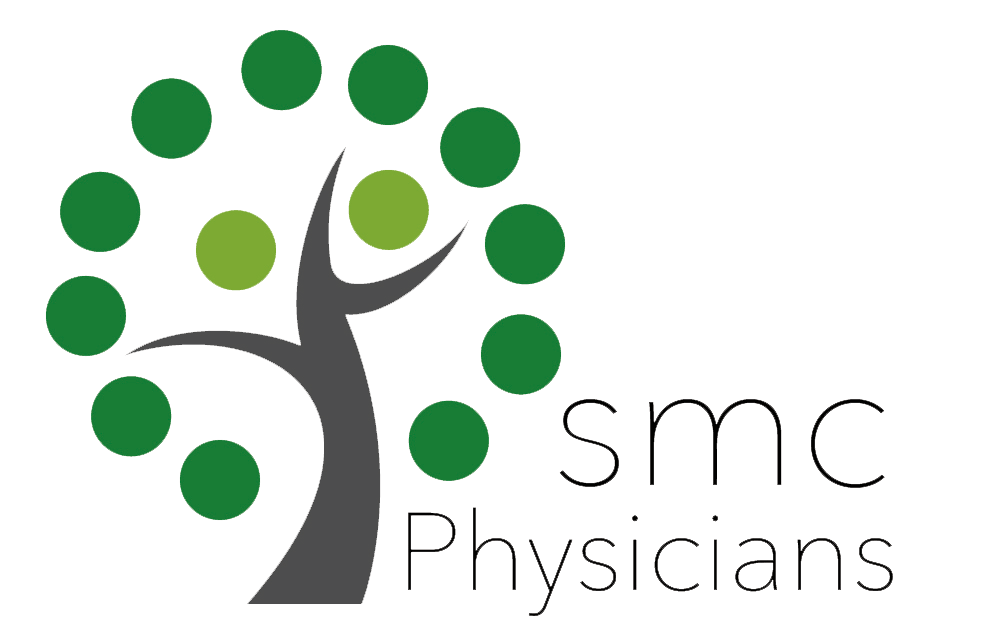Endocrinology
Diabetes Type 1 & 2
Diabetes is a chronic condition that globally affects millions of people. It has two main types – type 1 and type 2. Both can lead to high blood sugar levels but have different causes, symptoms, and treatments.
Type 1 Diabetes
Type 1 diabetes develops when the immune system mistakenly attacks and destroys the cells in the pancreas that produce insulin, which is needed to control blood sugar levels. The main feature of type 1 diabetes is insulin deficiency. Without insulin glucose accumulates in the bloodstream and causes high blood sugars (hyperglycemia). This type of diabetes is not very common and only affects around 5 to 10% of people with diabetes.
The autoimmunity associated with type 1 diabetes may be related to genetic and environmental factors. You can get type 1 diabetes at any age, but it usually develops in children, teens, or young adults.
Symptoms of Type 1 Diabetes
The symptoms of type 1 diabetes can develop rapidly over a few days or weeks. They include:
- Frequent urination
- Extreme thirst
- Increased hunger
- Unintentional weight loss
- Fatigue
- Blurred vision
If you experience these symptoms, seeking medical attention as soon as possible is essential.
Treatment of Type 1 Diabetes
Insulin therapy is the primary treatment for type 1 diabetes. Insulin therapy involves injecting insulin into the body with a syringe, insulin pen, or insulin pump to keep blood sugar levels within a normal range. It is important to follow a healthy diet and exercise routine to maintain adequate blood sugar control and cardiovascular health.
Insulin therapy can be administered in many forms. Using insulin vials, pens or insulin delivery pumps and devices.
Type 2 Diabetes
Type 2 diabetes is a metabolic condition in which the body cannot use insulin properly (insulin resistance) or does not produce enough insulin in the pancreas to meet the bodies excessive demand of insulin to control blood sugars. The condition typically affects adults but can occur in people of all ages. It accounts for approximately 90-95% of diabetes patients. Type 2 diabetes is often linked to lifestyle factors, such as obesity, physical inactivity, and a poor diet.
Symptoms of Type 2 Diabetes
Type 2 diabetes symptoms usually appear slowly over a long period. Some people may experience no symptoms at all. The symptoms include:
- Increased thirst
- Frequent urination
- Increased hunger
- Unintended weight loss
- Blurred vision
- Fatigue
- Frequent infections
- Slow healing sores
- Numbness or tingling in hands or feet
Talk to your doctor about getting tested for diabetes if you notice any of these symptoms.
Treatment of Type 2 Diabetes
Treating type 2 diabetes will depend on the severity and duration of your condition. The cornerstone treatment is lifestyle changes such as losing weight, exercising regularly, and following a healthy diet, which in many cases may be enough to manage blood sugar levels. In other cases, medication such as metformin or insulin therapy may be necessary to add on lifestyle changes.
Complications of Type 1 & Type 2 Diabetes
Both types of diabetes can cause serious and potentially life-threatening complications that include:
Eye problems. Retinal damage (diabetic retinopathy) is a leading cause of blindness when left untreated. (our practice offers adiabetes eye exam, RetinaVue, that takes 5 min and does not require dilation)
Foot problems. Nerve damage caused by diabetes can affect the feeling in your toes, feet, and legs, and high blood sugar can damage circulation, making it slower for sores and cuts to heal.
Heart attack and stroke. High blood sugar for an extended period can damage blood vessels, leading to heart attacks and strokes.
Kidney problems. Diabetes can cause kidney damage over a long period and is a leading cause of kidney failure.
Working closely with your primary care physician, an endocrinologist, and a registered dietitian will help you create a diabetes treatment plan that works best for you,
It is very important to monitor your blood sugar continuously for better diabetes control. (Glucometers or Continous Glucose monitors)
If you are experiencing symptoms of type 1 or type 2 diabetes, contact us today to schedule an appointment with our Endocrinology team at SMC Physicians for proper diagnosis and treatment. Early detection and effective management can help prevent complications and improve your overall well-being.
List of Services & Specialities
Our Endocrinology Team




Our Endocrinology, Diabetes, & Weight Management Locations:
Ventnor
6725 Ventnor Avenue, Suite C Ventnor, NJ 08406
Hours:
Monday: 8:30am-5pm
Tuesday: 8:30am-5pm
Wednesday: 8:30am-5pm
Thursday: 8:30am-5pm
Friday: 8:30am-5pm
Galloway
415 Chris Gaupp Drive, Suite D Galloway, NJ 08205
Hours:
Monday: 8:30am-5pm
Tuesday: 8:30am-5pm
Wednesday: 8:30am-5pm
Thursday: 8:30am-5pm
Friday: 8:30am-5pm
Cape May Court House
108 N. Main Street, Suite # 1, Cape May Court House, NJ 08210
Hours:
Monday: 8:30am-4pm
Tuesday: 8:30am-4pm
Wednesday: 8:30am-4pm
Thursday: 8:30am-4pm


